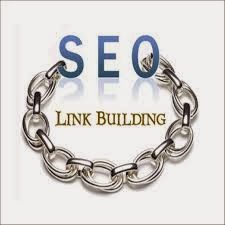Link building isn't fun. And in 2014, if done correctly, it certainly isn't cheap or easy.
Most importantly, and contrary to what you may have heard, link building is far from dead. Many of the "link building is dead" theories are rooted in wishful thinking and/or fear. The fear is real and understandable as the Penguin update finally delivered on Google's long running promise to severely penalize websites engaged in manipulative link schemes.
Some have concluded that the best and safest response to Penguin is to stop link building altogether. That's a bad idea.
Here's a reality check: the best way to improve visibility in the SERPs, in 2014, is still link building. Links are still believed to be the most important part of the algorithm, according to the most recent Moz search engine ranking factors survey.
Google's own Matt Cutts confirmed the same in an interview with Eric Enge, stating:
"Links are still the best way that we've found to discover (how relevant or important somebody is) and maybe, over time, social or authorship or other types of markup will give us a lot more information about that."
That statement has some pretty important implications, when it comes to planning and budgeting for a digital marketing campaign.
The main takeaway is this: Link building is still the key to more visibility in organic search. If your objective is to improve visibility in organic search, then invest in resources accordingly. Social media and authorship may impact the SERPs at some point in the future, but not today and probably not significantly in 2014.

Relevance is the New Page Rank
The evolution of the original 1 link = 1 vote algorithm took a quantum leap forward in May 2012 with the introduction of the Knowledge Graph, which is used by Google to deliver search results with semantic-search information. This information is gathered from a wide variety of sources, using more than 500 million objects and 3.5 billion facts. In Google speak, the Knowledge Graph is about "things, not strings."
It's quite probable that Knowledge Graph is baked into Hummingbird, the latest Google algorithm. Assuming that's the case, then a correlation between "context, not anchor text" and "things not strings" is applicable. Relevance is the new Page Rank when searching for linking opportunities.
A real life example could look something like this: Pre-Hummingbird, a search for car covers might yield results split among auto accessories to protect your car, tribute bands that cover the classic rock group "The Cars" and songs covered by Ric Ocasek and the cars. The "old" algorithm couldn't distinguish one car cover from another. Hummingbird, on the other hand knows the difference. Now, all of those auto parts links coming from high PR band sites, are now exposed for what they really are: unnatural. At best the link is devalued. At worst it triggers a manual review.

Link Schemes vs. Link Building
Understanding the difference between link scheming and link building is critically important in 2014. For webmasters who were doing SEO before Panda, this can be particularly difficult to navigate.
Many have been directly impacted by the Google paradox. Unlike the Einstein theory of insanity, in the Google Paradox, SERPs actually do yield different results after doing the same thing spammy link building over and over again.
A link scheme that scored number one rankings in 2010 can and will draw a manual or algorithmic penalty, today. That paradox has driven many a webmaster nuts!
According to Google, the following activities are link scheming – not link building:
- Buying or selling links that pass Page Rank
- Using automated programs or services to create links to your site
- Linking to a site for the sole purpose of getting a link back
- Building a link networking for the purpose of linking
- Large-scale article marketing or guest posting using keyword-rich anchor text
- Buying advertorials or articles that include links that pass Page Rank
- Creating & Distributing Press releases with optimized anchor text
Recently removed from the guidelines, but still likely to trigger a penalty:
- Linking to web spammers or unrelated sites with the intent to manipulate Page Rank
- Links that are inserted into articles with little coherence
3 Safe Ways to Build Links in 2014
So what's left?
- Focus external link building efforts on the acquisition of editorially given links. These are links requiring human intervention and approval.
- Build links that are relevant – on pages where the readers would have a genuine interest in your website.
- Quality trumps quantity. A few links from high trust/authority websites will have more impact than hundreds of links from "Made for Guest Posting" blogs.
There are no more short cuts to link building. The process is hard and time consuming. In 2014, it's time to spend the time and the money to do it right so you can stop fearing the Google reaper.
Article Source : search engine watch.
0 comments:
Post a Comment